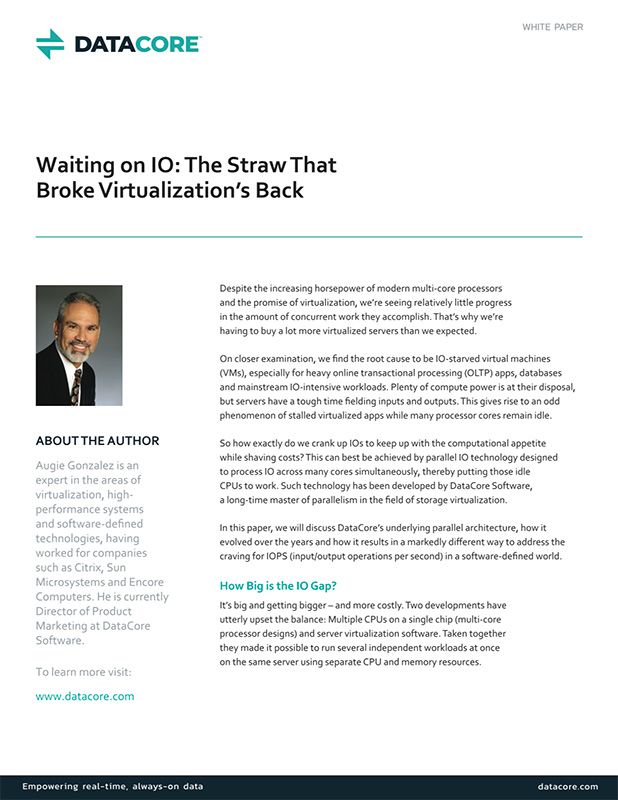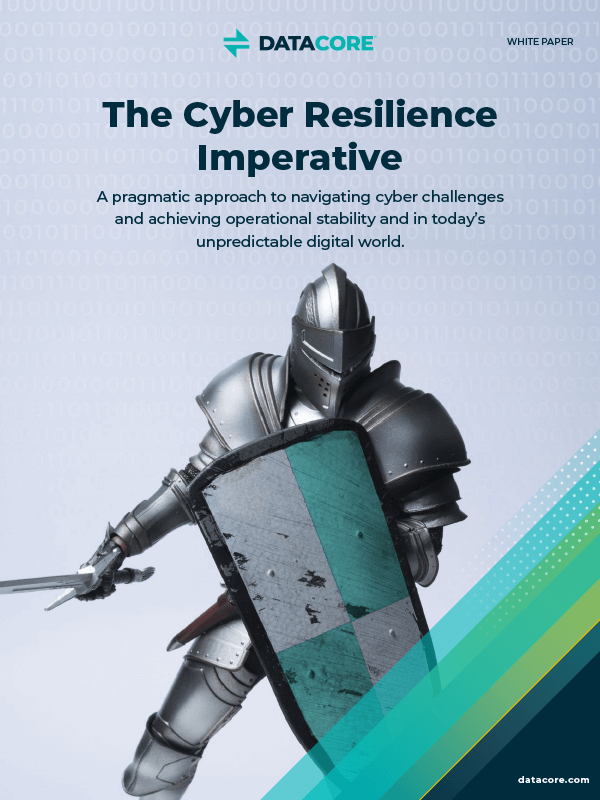Despite the increasing horsepower of modern multi-core processors and the promise of virtualization, we’re seeing relatively little progress in the amount of concurrent work they accomplish. That’s why we’re having to buy a lot more virtualized servers than we expected.
On closer examination, we find the root cause to be IO-starved virtual machines (VMs), especially for heavy online transactional processing (OLTP) apps, databases and mainstream IO-intensive workloads. Plenty of compute power is at their disposal, but servers have a tough time fielding inputs and outputs. This gives rise to an odd phenomenon of stalled virtualized apps while many processor cores remain idle.
So how exactly do we crank up IOs to keep up with the computational appetite while shaving costs? This can best be achieved by parallel IO technology designed to process IO across many cores simultaneously, thereby putting those idle CPUs to work. Such technology has been developed by DataCore Software, a long-time master of parallelism in the field of storage virtualization.
In this paper, we will discuss DataCore’s underlying parallel architecture, how it evolved over the years and how it results in a markedly different way to address the craving for IOPS (input/output operations per second) in a software-defined world.

